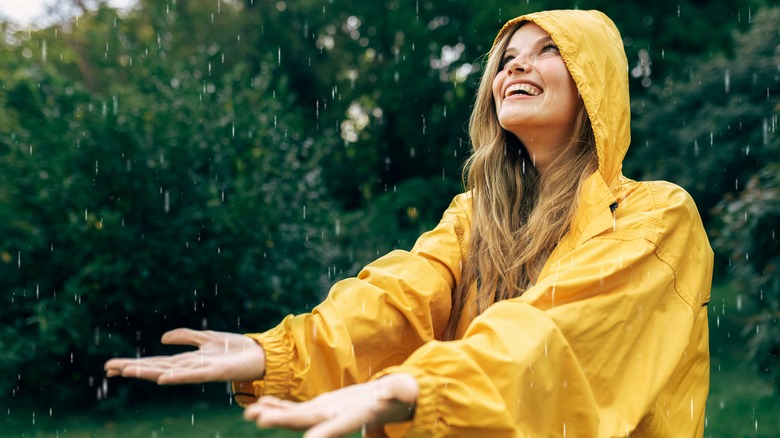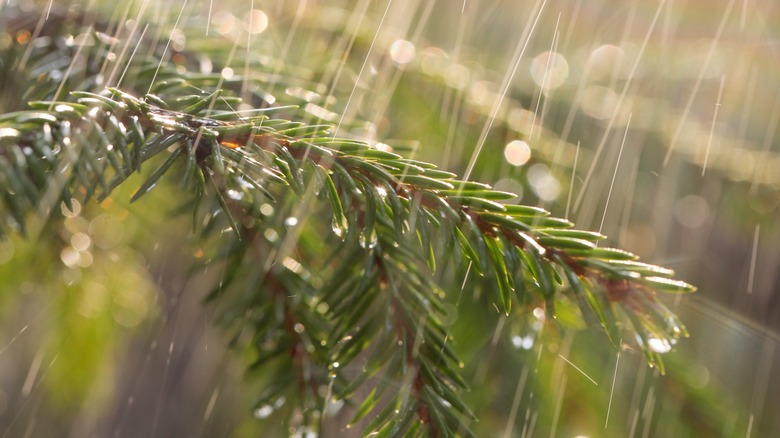Is It Safe To Collect And Drink Rainwater?
Maybe you can remember the days when you were a child and stuck your tongue out to catch droplets of rain, or maybe you have even seen someone do this in the movies. While this might seem like just a fun and silly pastime, did you know that it's possible to collect rainwater for your own personal use? According to Treehugger, this is called "rainwater harvesting," which has many benefits for the environment. By collecting rainwater, erosion in dry environments and flooding in low-lying areas can be reduced. Collecting rainwater also has benefits for the ocean and other natural bodies of water, as stormwater runoff can overwhelm sewage systems and transport pollutants into rivers, streams, lakes, and ponds. Additionally, it could even save you some money on your monthly water bill.
Harvested rainwater can be used for several unique purposes, such as for landscaping, swimming pools, car washing, baths, showers, or washing machines. While all of this might sound promising and useful for the environment, you might be wondering if it is safe to consume rainwater. Can you use it in place of tap water or bottled water, and can you utilize rainwater for cooking?
Is rainwater safe to drink?
Rainwater can sometimes be safe to consume, but not without additional effort. As illustrated in Treehugger, collected rainwater must be filtered or boiled at a rolling boil to remove pathogens and organisms that contribute to diseases. Even then, the U.S. Centers for Disease Control and Prevention (CDC) suggests that it's better to err on the safe side and avoid using rainwater for consumption purposes like cooking, drinking, or brushing your teeth. The CDC reports that rainwater is not pure, and will likely carry bacteria, parasites, and chemicals that can make you sick. Furthermore, consuming rainwater has been associated with disease outbreaks. Because rainwater is collected from the roof, it can come into contact with many undesirable substances like bird feces, dirt, dust, and germs.
The rainwater you collect will also be more acidic, with a pH balance of approximately 5.0-5.5 (per Healthline). It can be even more acidic if you live in an area with increased air pollution. When compared to water from more clean and trustworthy sources, research suggests that rainwater doesn't seem to be significantly more hydrating or beneficial to our health.
For these reasons, it's safer to avoid drinking rainwater, and the CDC suggests drinking municipal tap water or bottled water instead. If you're interested in rainwater collection, it's important to check rules and regulations in your area, consult your doctor if you have a weakened immune system, and make sure that you have a safe collection, treatment, and testing system.


